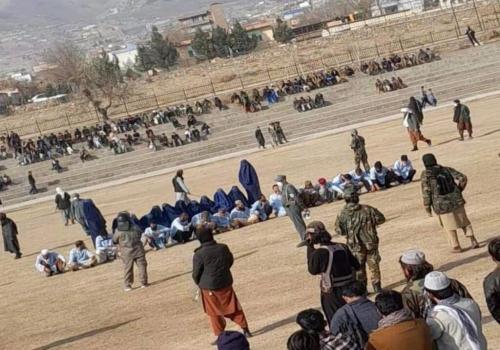01 January 1999 :
Conditions in Iraqi prisons are unbearable. Torture and mistreatment are very common. Methods of torture used in Iraqi jails include using electric drills to maim hands, pulling out fingernails, sexual attacks and "official rape". Detainees at the "Qurtiyya" (the can) prison - located in a Directorate of General Security (DGS) compound in Baghdad - are kept in 50-60 metal boxes the size of old tea chests. Each "cell" has a tap for water and a floor made of mesh to allow the prisoners to defecate.Similar conditions can be found at the "Sijn Al-Tarbut" (the casket) prison, located on the third underground level of the new DGS building in Baghdad. There are around 100-150 rectangular steel boxes, as found in mortuaries, which are opened for half an hour a day to allow the prisoners some light and air. The detainees here receive only liquids. If they do not confess they are left to die. About 30 kilometres west of Baghdad there is the notorious Abu Ghraib, Iraq´s largest detention centre. It contains various sections, some of them are open to visits by relatives and others are closed. The only way to gather information is to get testimony from somebody who was released or someone who had visited a jailed relative. But many of the Abu Ghraib prisoners are held in secret locations where they are taken blindfolded into cells with no view of their surroundings. There are some other notorious prisons in Iraq, including the Radhwaniya reportedly one of the worst places in the country. This one is in fact a detention house, which in general is a worse place than a prison. The International Federation for Human Rights (FIDH), following a mission to Iraq in July 2002, published a list of 199 prisons around the country, but there are many unofficial detention centres. According to the Iraqi Human Rights Group, secret prisons amount to 300, situated in warehouses, government buildings or ministries such as the agriculture ministry. All military command centres have a detention area, generally reserved for political prisoners, estimated to be around 4,000. The total prison population adds up to 60,000 inmates, thousands of whom never get to trial and for whom the only hope of release rests on amnesty.








